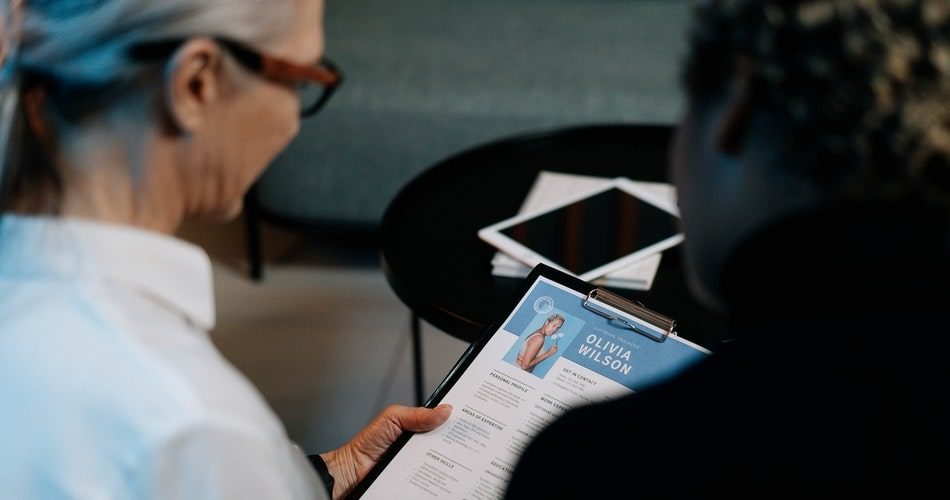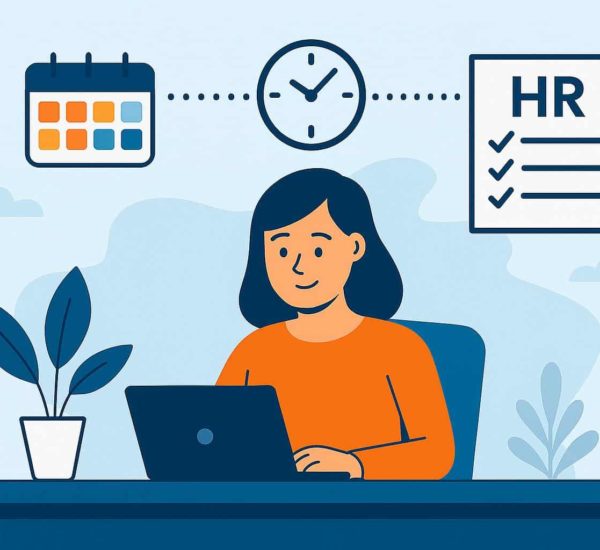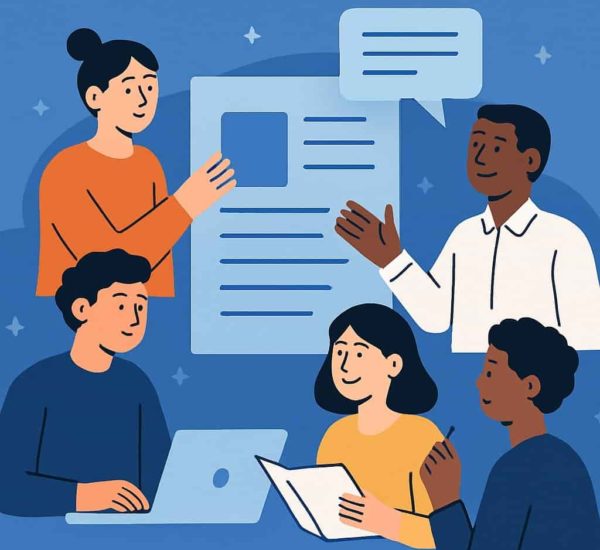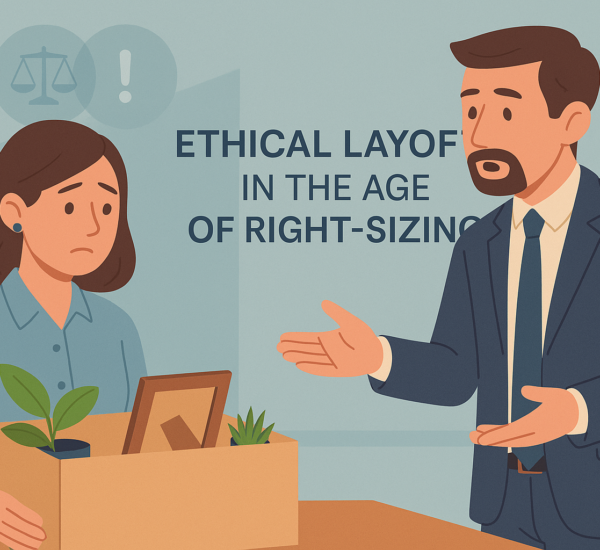The HR titles hierarchy has 6 major levels: VP, Director, Manager, individual contributor, and entry-level HR positions. All these positions work together to make help an organization grow.
All of these roles have various roles to play and have their importance in the organization. However, in this article, our subject will be one of the entry-level HR positions: the HR generalist.
What is an HR Generalist?
One of the most important designations in HR is that of an HR generalist. The HR generalist has various roles to play in the office. From resolving disputes to completing the onboarding of new hires, an HR generalist does it all. An HR generalist’s main role is to handle the day-to-day functions of any organization including the onboarding of new hires and their training.
The HR generalist is an entry-level human resource position in HR who is usually hired to assist managers and HR specialists. They help the HRBP and other members of upper management in making policies and other procedures of the organization.
We will get to the role of an HR generalist in detail in the next sections.
HR Generalist Job Description
A template of an HR generalist job description is given below:
The human resources generalist manages the day-to-day functions of the human resource department and works closely with the senior management. We [company’s name] are looking for a qualified and resourceful HR generalist to help achieve the organization’s HR targets and provide assistance to the senior team. If you like interacting with others, planning events, and working in a fast-paced work environment, this job can be an exciting opportunity for you.
The HR generalist administers HR policies, programs, and procedures. The position carries responsibilities in the following areas of function:
- Development department
- Employee relations
- Benefits administration
- Employee training
- Policy administration
- Employee recruitment and onboarding
- Compensation
- Organizational development
If you are interested in the job, email us your resume at [email address]
Now that we’ve understood what the job description of an HR generalist covers, let’s look at their responsibilities, skills, and the qualification that should be added to the position description.
HR Generalist Responsibilities
What does an HR generalist do? At any organization, an HR generalist performs many roles.
An HR generalist helps the HR managers and HR coordinators carry out daily functions at the organization. While an HR generalist’s role is never limited to one responsibility, some of HR generalist duties are as follows:
Recruiting
- An HR generalist manages employees’ payroll and employee benefits.
- They manage the hiring process of new employees and their onboarding.
- They help with recruiting and if there isn’t a designated recruiter, the HR generalist has to directly manage to recruit.
- Before hiring someone, the HR generalist reviews their resume and then conducts the hiring process.
- The human resource generalist comes up with strategies to carry our efficient orientation for the new employees. Their duty is to make sure employees have a great first workday.
Management
- Including leaves, bonuses they take care of absent management of employees.
- They help in regularly updating job descriptions for all positions in the organization.
- HR generalists conduct interviews for most employees and make recommendations about them to the upper management.
- They help conduct exit interviews to keep a check on employee behavior. Then they suggest ways to improve their organization.
- They also handle the compensation and benefits within the organization.
Organizing
- One of their roles is to organize all the employee records either in hard or soft copies.
- A human resources generalist helps managers in maintaining the work structure.
- They help in organizing seminars, conferences, and workshops for the organization.
- They help set up training and development programs for the employees.
- One important responsibility of an HR generalist is to calculate analytics for employee turnover
Documentation
- Another HR generalist duty is to prepare performance evaluation reports of employees.
- They conduct employee satisfaction surveys and suggest ways to improve their working experience.
- Their job is to take care of all the legal stuff of the organization and conduct investigations to ensure its legal compliance with rules, regulations, and labor laws
Employee Welfare
- Another job of an HR generalist is to support their employees in case a human resource issue arises.
- They take care of employee safety, by making policies and rules.
- Another responsibility of an HR generalist is to suggest ways to foster a positive and nourishing work environment at the workplace and a healthy relationship between the employer and the employee.
- An HR generalist makes sure there is active communication for employees in all departments.
Policy Development
- An HR generalist develops and implements several policies in the workplace including dress code policy, anti-harassment policy, and code of conduct policy to name a few.
HR Generalist Salary
In the US a human resources generalist’s salary varies from state to state. However, according to Glassdoor, the average salary of an HR generalist in the United States is $60,174 per year.
HR Generalist Skills
To become an HR generalist, an individual should have the following skills:
Problem Solving
An HR generalist should be skilled at problem-solving. They should be able to analyze a problem and suggest multiple ways to resolve it.
Customer Service
They should be able to meet commitments when it comes to dealing with customers. They should know how to respond to their needs in a short time.
Oral Communication
A human resource generalist should be able to effectively communicate. They must be skilled in communicating clearly and persuading people.
Written Communication
HR generalists have a lot of writing to do. They must have at least basic writing knowledge. They should be able to write clearly without grammar or spelling mistakes and read written information with ease.
Business Acumen
They should have the desired business acumen to understand any possible business complications.
Strategic Mind
They should be able to think strategically and devise ways to cope with a problematic situation in a short time. They should also be able to think of strategies to meet the organizational goals effectively.
Planning and Organizing Skills
An HR generalist should have exceptional planning and organizing skills because most of their work will involve organizing employee data and planning conferences in the organizations. They should be able to do that in an efficient way.
Professionalism
Professionalism is a must. They should be able to handle everything professionally, be able to react well under pressure, should treat everyone with respect, and tactfully approach them. They should meet their commitments, wear work-appropriate clothes, and should portray a positive image of the organization.
Time-Conscious
A very important skill for them to have is time management. They should be skilled in managing all their projects in a time-efficient manner. They should know how much time to spend on a particular task.
Cost-Conscious
Within the given budget, they should be able to skilfully finish a project. They should carefully use the company resources.
Adapting Skills
They should possess great adaptability skills. They should know how to adapt to a changing work environment. Plus, they should be able to deal with frequent changes or unexpected events in the organization.
Quality Management
They should be skilled enough to improve the organizational quality and be thorough and accurate in their work.
Accountability
An HR generalist should take responsibility for their actions.
Punctuality
Punctuality at work is just another skill an HR generalist should have.
How to Become an HR Generalist?
The required degree for an HR generalist’s job varies from company to company. However, most organizations prefer having at least a bachelor’s degree in the relevant field. Larger organizations however only accept individuals with a master’s degree. Let’s take a deeper look at the required qualification for this position:
Education
To become an HR generalist individuals need to have a bachelor’s degree either in human resource management, human resource administration, social sciences, or organizational development. Along with that, the individuals should have basic knowledge of subjects like accounting, business, English, employment laws, and basic statistical concepts. However, for higher manager roles, a master’s degree in HR is generally required.
Training
A little on or off-the-job training will benefit individuals in becoming human resources generalists. Attending workshops based on relevant training programs should strengthen their understanding of this role. Training areas include laws in HR, the role of HR in business, challenges in HR, and ways to resolve them.
Certification
Although certification is not mandatory for an individual to apply for this position, some organizations do prefer HR generalist certification. Some options we think are suitable:
Professionals in Human Resources (PHR)
Senior professionals in Human Resources (SPHR)
Difference Between HR Generalist and HR Specialist
The role of an HR generalist differs from that of an HR specialist:
- An HR generalist is a person who is skillful in various work categories in the organization. They are capable of providing counsel in almost every field and handle all aspects within HR. On the other hand, an HR specialist is a person who specializes in one particular HR area.
- An HR generalist is typically a jack of all trades and master of none, while HR specialists are masters in one field. They help an organization to develop and grow and engage its workforce.
- Since a generalist is quite occupied most of the time, they take a lot of time to answer their employees’ queries. On the other hand, the specialist is part of a single support team that answers employee queries much quicker.
- For new hires, the HR generalist will begin with their hiring, onboarding, and training. However if for instance, an HR specialist has specialized in recruitment, once a person is hired, their work is done.
- HR generalists are usually a part of small organizations with limited HR requirements and budgets. While large organizations mostly prefer to hire HR specialists.
- HR generalists usually have a higher salary than HR specialists.
HR Generalist Interview Questions
For an idea of HR generalist interview questions, refer to the list below:
General Questions
- What do you know about employee engagement?
- What do you like the most about the human resources field?
- Where do you see yourself five years from now?
- Why do you want to work as an HR generalist?
- Is there anything about this position you think will be hard for you to do?
- Do you enjoy paperwork?
Scenario-Based Questions
- What do you think of making reports about employee performance?
- Do you think you will be able to do employee appraisals?
- If you were to boost employee motivation, can you think of any two? Please elaborate.
Elaborative Questions
- Do you think personal bias can affect the hiring process? If yes, how can that be reduced?
- The role you are seeking has to do a lot with administration. How do you think you are a fit for this job?
Knowledge-Based Questions
- What do you know of 360-degree performance appraisal?
- Are you aware of the sexual harassment laws in the workplace?
- What steps should you take before terminating an employee?
Experience-Based questions
- In your experience, how do you plan or organize something?
- Do you have any experience in the recruitment process?
- Have you ever written an employee policy?
- Have you organized an event before?
- Do you have experience in arranging seminars and workshops?
Final Word
Lastly, the more you add to the job description, the better will be the chances of finding someone suitable for your organization. Be mindful of the tone, choice of words while creating a job description. Although the duties an HR generalist will perform depend upon the size of your organization. Choosing the qualifications based on the needs of your organization will make hiring the right person easier.







